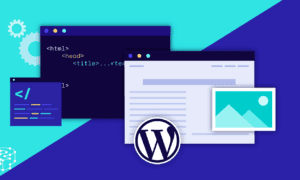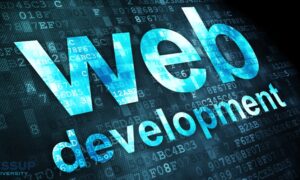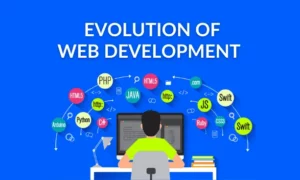Let’s put it this way: WordPress is the most used CMS on Earth. It powers over 28% of all websites and has helped millions of people create successful websites online.
So how does one learn how to build a site like that? What does it take to get started with WordPress? To answer these questions, we’ve created a beginner’s guide to WordPress web development — from discovering which plugins can benefit your site to installing and learning the basics of the WordPress setup.
Let’s get started.
This article focuses on the process of learning WordPress and building your first website, specifically related to web development. As such, it will cover everything from installing WordPress to setting up and learning the basic functions to leveraging the web database and database management system.
To make things easier, we will provide a short list of plugins to download at the end of this guide to get you started including:
What is WordPress?
WordPress is a content management system (CMS), built and backed by a popular community of developers. It’s structured so that you can create great websites, online stores and blogs, which all use the same free software. The CMS has made it easy for anyone to learn how to build a website, Blog, eCommerce platform or any other site online. This is how we define WordPress:
“WordPress is an open-source content management system and blogging tool designed to create websites and blogs. It’s based on PHP, a programming language that is sometimes referred to as LAMP.”
You can do all of this from the comfort of your own home. For example, WordPress offers a free plugin Jetpack, which offers additional tools and services to help you manage and update your site. At the time of writing, there are well over 41,000 different plugins available on WordPress.org
Why use WordPress?
WordPress gives you the tools necessary to design a high-quality website without learning HTML. It’s designed to make it easy to create a beautiful, responsive website and to offer you an opportunity to learn more about website development and design.
“The purpose of WordPress is to democratize publishing,” said Matt Mullenweg, the CMS developer behind WordPress. “We want anyone to be able to have a voice and share their stories with the world.”
WordPress is secure and reliable. That means you can build your website with all of your content without the likelihood of your site being hacked or compromised.
WordPress is fast. It’s designed to be a fast, secure, and reliable platform that allows you to develop an online store, blog, or eCommerce platform effortlessly. WordPress is an excellent content management system that allows you to create a fully customized website easily and quickly — all from the comfort of your home.
WordPress is customizable. WordPress is fully customizable. This means that you can easily tailor the site to suit your style and personal preferences, allowing you to control how your site develops.
How Much Does it Cost?
The costs for WordPress are usually low and are usually free. You can often install the CMS for free or a few dollars per month if you pay for hosting services. You can also use WordPress with your hosting web package if you want a fully hosted solution. Consider using WordPress as a self-hosted solution.
What You Need to Know about Hosting Your Website on WordPress
Once you’ve decided to use WordPress, you must sign up for hosting services. Before you decide on a web host, there are a few things you should consider:
- If you’re unsure what you need, check out our WordPress FAQ — it has information on everything from hosting to Jetpack.
- Be sure to check the services your hosting provider provides, such as WordPress installations, and how many databases per account you can use before adding extra charges to your monthly bill.
- Check the uptime of any hosting provider you’re considering signing up with — you can find this information in terms of Service or on the host’s website. Uptime is key because if your website is down, you lose traffic and revenue flow. Find another service if a web host can’t guarantee an uptime percentage that works for your business.
- Look into other options, such as WordPress hosting or managed WordPress services that offer additional features and support related to your site.
Once you’ve decided on a hosting provider, you’ll need to install WordPress. If you’ve purchased a domain name from Namecheap, you can use our One-click installer to install WordPress on your hosting account.
Conclusion
This guide teaches you about the WordPress content management system for building websites and blogs. You’ve also learned why WordPress is one of the most popular CMS platforms. Planning your next website with WordPress? Use WeMakeIT to get started today! What other CMSs do you host? Please let us know in the comments below.
Do you want to take your WordPress site to the next level? Then check out our consultation service – WeMakeIT! Whether you need help choosing a WordPress theme, have learned a bit of PHP, or just want to get your site ranked — WeMakeIT can be your ultimate ally. Get in touch with us today!
Thanks for reading! And if you enjoyed this guide, please share it with others.



































